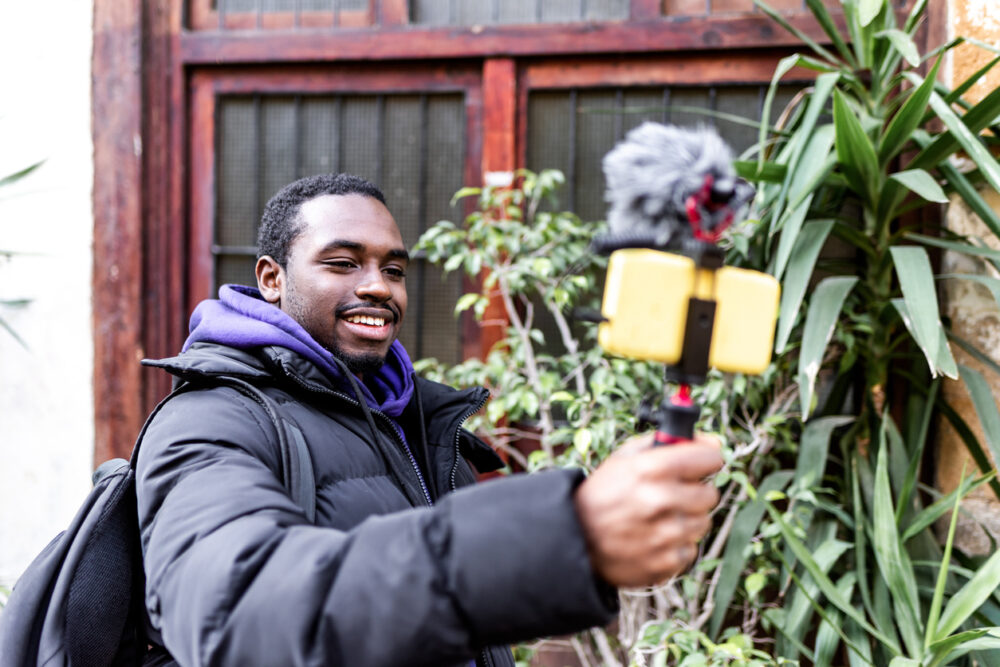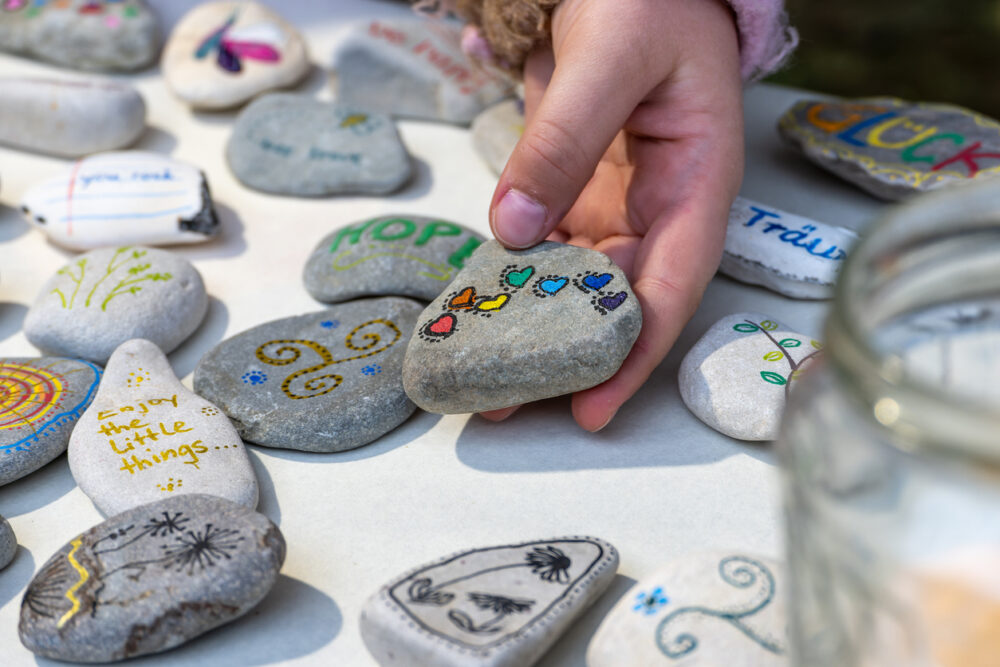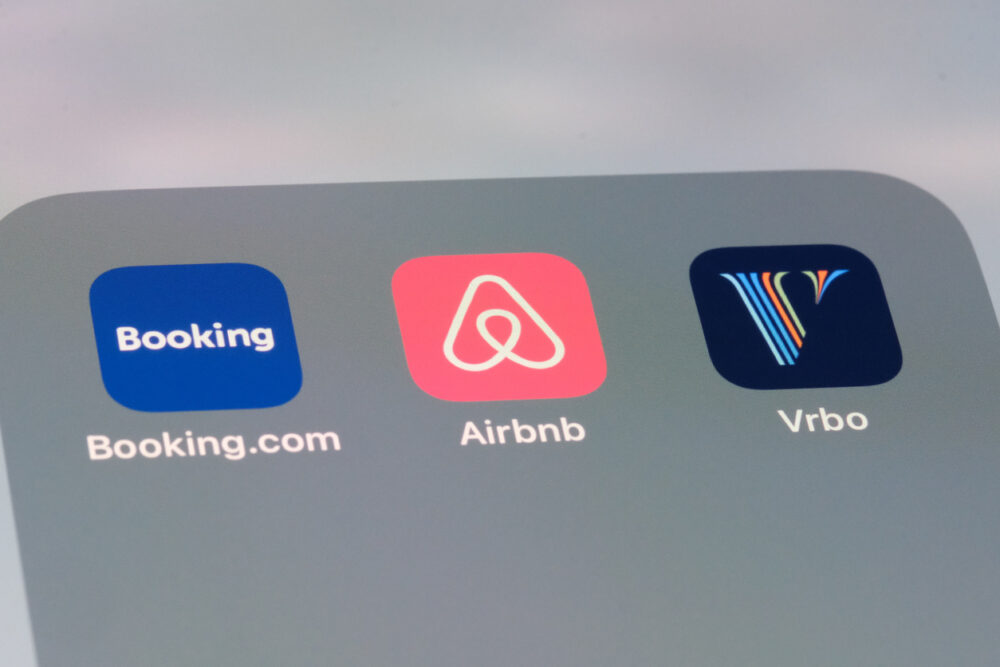Some travelers are quietly cashing in while everyone else is just spending.

There’s a growing number of travelers out there who aren’t just chasing sunsets—they’re also stacking dollars in some seriously creative ways. These aren’t your typical digital nomads offering freelance design or travel blogging. We’re talking about clever, quirky, and sometimes downright bizarre methods that are actually paying off. Most of these side hustles don’t need a huge investment, just a bit of hustle and a willingness to think differently.
You might find yourself raising an eyebrow or laughing out loud, but these strategies are very real and increasingly popular among backpackers, vanlifers, and long-haul wanderers alike. They blend adventure with hustle, blurring the line between vacation and vocation.
Some are so subtle that the people around them have no idea money’s changing hands. If you’ve ever wondered how some travelers stay on the road so long, these oddball income streams might be their secret.
1. Selling sand or pebbles as “souvenirs.”

It sounds ridiculous, but some travelers are scooping up small amounts of sand, pebbles, or shells and selling them online as keepsakes. There’s a niche market on Etsy and similar platforms for tiny glass jars filled with “authentic” grains from famous beaches. As long as you’re not taking from protected sites, it’s often legal and surprisingly lucrative, especially if you include a cute label and a handwritten note.
What makes this work is the emotional pull. Buyers love a story, and selling these tiny time capsules creates a connection between them and the destination. It’s low effort, lightweight to carry, and easy to do discreetly. The trick is finding picturesque or iconic spots and packaging the experience well, as mentioned by the authors at PennState College of Agricultural Sciences. Add a little flair or turn it into a “mystery beach box,” and you’re suddenly running a travel-themed micro business from your backpack.
2. Becoming a travel tattoo artist on the road.

If you’ve got the skills and a lightweight tattoo machine, you can offer ink in hostels, vans, or even beachside bungalows. Some travelers are tapping into this underground scene, giving stick-and-poke or machine tattoos to fellow wanderers, say experts at Florida Tattoo Academy. It’s about connection as much as creativity. People love the idea of carrying a permanent memory from a unique encounter in a foreign place.
Of course, hygiene is everything—most of these tattooing nomads bring sterilized equipment and practice safe methods, often attracting a loyal following through word of mouth and social media. You’d be surprised how many travelers are willing to pay for a small, meaningful tattoo to mark a milestone. It’s personal, mobile, and earns cash fast without needing a storefront.
3. Busking with unexpected skills, not just music.

Street performers aren’t new, but modern buskers are mixing it up in ways that get serious attention—and cash. Instead of just strumming a guitar, travelers are juggling fire, doing comedy routines in multiple languages, or even offering improv tarot readings with a twist. Unique acts draw curious crowds, especially in touristy areas with high foot traffic, as reported by Moody Mattan at Brand XR.
The key is standing out. If you can make people laugh or give them something they’ve never seen before, they’ll happily toss coins your way. Some travelers even partner up, blending their talents to create small sidewalk shows. It’s performance, hustle, and interaction all wrapped in one. Plus, it’s a fun way to meet locals and other travelers who might offer tips, gigs, or just a free meal.
4. Renting out their home or car while they’re away.

For travelers who still keep a base somewhere, renting out their house, apartment, or car while they’re on the road can fund a huge portion of their travels. Platforms like Airbnb or Turo make this super accessible, and the income often covers flights, meals, and even extended stays abroad. Some are even turning this into a full-time system, with trusted cleaners and key handlers keeping things running.
This isn’t exactly strange—but the smart part comes when travelers automate the process completely. They might never return home, yet still make a steady stream of money from a place they’re not using. Some even swap homes with other travelers, creating a sort of global barter network. It’s low effort once set up, and every booking brings in money while they’re off hiking volcanoes.
5. Flipping local thrift shop finds online.

Many travelers love exploring thrift stores, and some have realized those quirky local treasures can fetch higher prices online. Think vintage leather bags in Buenos Aires, rare vinyl records in Berlin, or handmade jewelry in Morocco. By snapping up unique, lightweight items and reselling them on Depop, Poshmark, or even Instagram, some travelers are covering entire legs of their journey.
It’s all about knowing what sells. If you’ve got an eye for trends and a little patience for shipping logistics, this can become a fun way to explore local culture while earning. Some people get niche—only selling vintage sunglasses or old postcards. Others go broad. Either way, it turns shopping into profit and gives you an excuse to treasure hunt in every new city.
6. Getting paid to walk dogs in foreign cities.

In big cities around the world, there’s demand for reliable pet sitters and dog walkers. Traveling animal lovers are jumping on apps like Rover or working directly with expat communities to walk pups while their owners work. It’s flexible, low-key, and gets you outdoors exploring neighborhoods you might never visit otherwise.
Some travelers even score longer gigs—like house-sitting with pets while a family is away for weeks. Not only does this cover accommodation, but it often includes a stipend. It’s perfect for slower travel and people who love animals but can’t have pets of their own. Plus, you build trust fast, and repeat gigs or referrals can turn this into a consistent source of income as you travel.
7. Offering odd experiences on Airbnb.

Airbnb doesn’t just rent homes anymore—it’s become a hub for weird, wonderful, and sometimes wild local experiences. Travelers are signing up to host everything from street photography walks to “meditation in a hidden cave.” Some even run cooking classes in shared kitchens or lead spooky night tours using a script they memorized on the plane.
It’s less about being a professional guide and more about giving people a good time. If you’ve got a fun personality and can spin a story, you can create an experience that people pay for. Airbnb handles bookings and payments, so once you’re listed, it can feel like passive income. Some hosts are fully mobile, recreating similar experiences in different cities as they go.
8. Selling polaroid portraits to strangers.

There’s something nostalgic and instantly gratifying about getting a physical photo, especially one taken on a classic Polaroid. Travelers with instant cameras are offering spontaneous portraits to tourists and locals for cash. Some charge by donation, while others set a small fee. It’s personal, interactive, and creates a real moment in places where digital photos dominate.
You don’t need to be a professional photographer, just friendly and respectful. Many travelers do this in parks, outside landmarks, or at flea markets. Some even add a twist—like writing a quick poem or travel quote on the bottom of each photo. It’s a low-tech hustle that keeps things human and tangible, and surprisingly, it works in most countries.
9. Picking up gigs as mobile massage therapists.

If you’re certified—or even just skilled through practice—massage therapy can be a valuable service while on the road. Some travelers offer massages in hostels, at yoga retreats, or even directly through Facebook groups catering to digital nomads. It’s not about building a spa—it’s about providing relief and relaxation to fellow wanderers.
You’ll need a foldable massage table or just a mat, oils, and clean towels. Word travels fast in tight-knit travel communities, and one good session can lead to a string of bookings. Some even barter sessions for meals or rides. It’s a great fit for slow travelers and those who enjoy meaningful, one-on-one connection with people who truly appreciate the service.
10. Taking part in medical or psychological studies.

Plenty of countries offer paid clinical studies for things like sleep, nutrition, or mild pharmaceutical trials. Some travelers plan their routes around these opportunities, signing up for a few days of testing in exchange for a decent payout, food, and sometimes even free lodging. It sounds intense, but most are low-risk and tightly regulated.
The quirky part is that it becomes a kind of game—finding the most interesting or highest-paying study in a city. Some are just surveys or focus groups, while others involve wearing a monitor or keeping a food diary. You’ll meet locals, learn how different countries do research, and pad your wallet in the process. Not everyone’s cup of tea, but it works for the curious and open-minded.
11. Hosting trivia nights or pub quizzes.

In cities with a solid expat or tourist scene, there’s a surprising demand for fun social events—especially in English. Some travelers create trivia nights at local pubs or host casual quiz games in hostels, charging a small entry fee or getting a cut of drink sales. If you’re quick-witted and can entertain a crowd, it’s an easy win.
You can reuse questions, tailor themes to your audience, and build a following with just a few good nights. It becomes part of the community vibe, and bars love it because it boosts attendance. Some even expand into karaoke nights or themed bingo. If you’re outgoing and love social settings, it can turn your nights out into money-makers without much overhead.
12. Freelancing as a mobile handwriting artist.

It’s not calligraphy in the traditional sense—many travelers are getting gigs doing handwritten menus, love notes, wedding invitations, or even personalized poetry at markets and cafes. If you’ve got neat or artistic penmanship, people will pay for that handmade touch. Some carry a small kit with different pens, inks, and paper, offering services on the fly wherever tourists gather.
The beauty of this hustle is how lightweight and spontaneous it is. You can set up a small table at a park or approach cafés and offer to update their chalkboards or signs. Others work with wedding planners abroad or create mail-in orders from social media. It’s peaceful, creative work that turns a personal talent into something tangible people want to buy. Plus, there’s something strangely satisfying about watching someone turn words into art—people will pay just to be part of the experience.
13. Documenting local ghost stories and selling short zines.

In cities with a rich or eerie past, curious travelers are collecting local legends, ghost tales, and strange folklore, then packaging them into little handmade zines or digital PDFs for sale. They’re interviewing locals, wandering through graveyards, and researching archives, then turning the material into quirky travel souvenirs or downloads. It’s part journalism, part storytelling, and part low-key thrill.
You don’t need to be a professional writer—just a good listener and a bit of a sleuth. Many travelers make the zines in small batches or email them as digital files for a few bucks each. It’s a passion project that can grow into a side income, especially if you build a following of readers who love the spooky, weird, or offbeat side of history. It turns wandering into purpose and gives people a unique peek into the soul of a place they visited—or wish they had.
